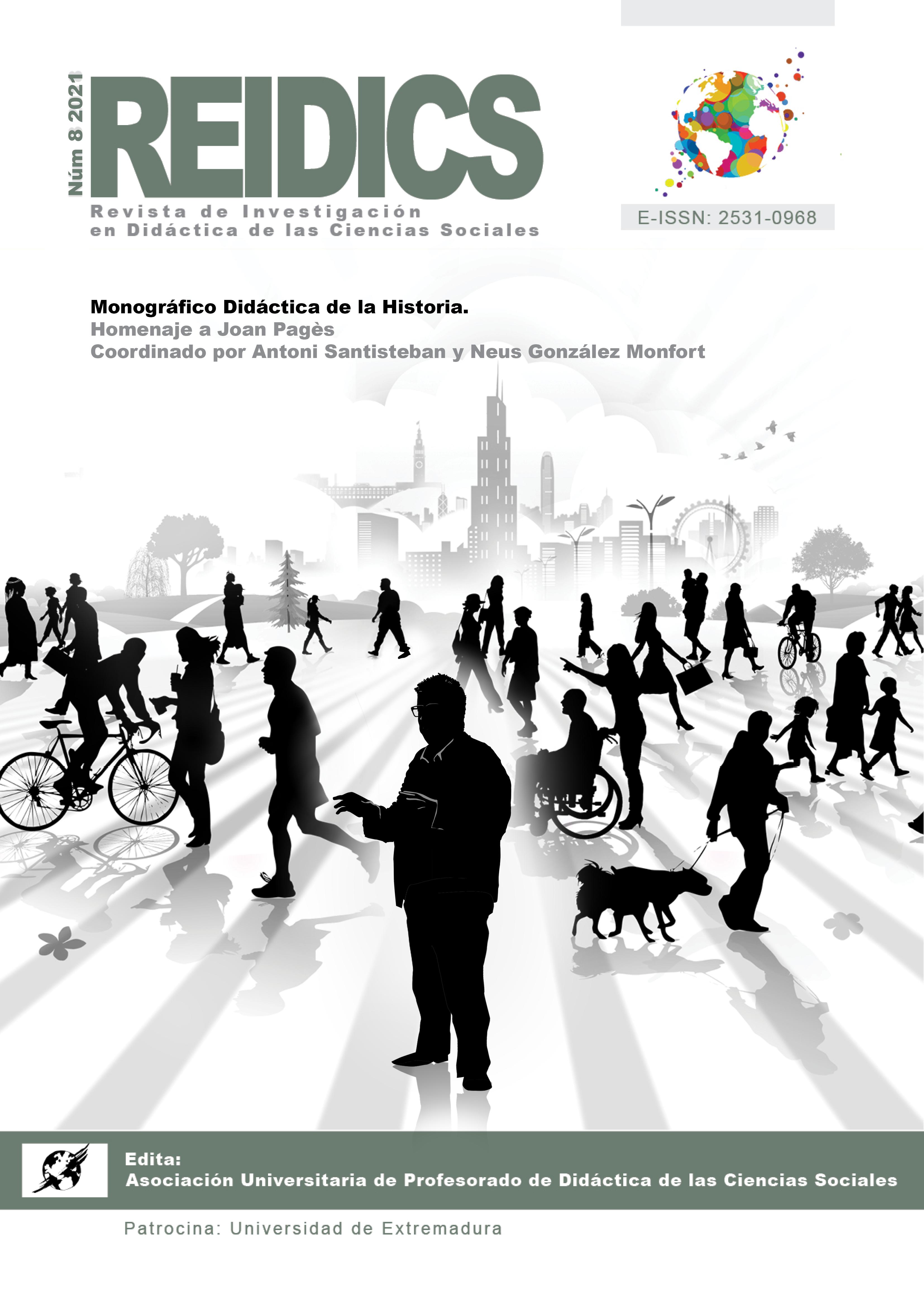Imperfect Classroom: democracy, utopia and history teaching
DOI:
https://doi.org/10.17398/2531-0968.08.58Keywords:
history teaching, teacher education, citizenship education, democracy, utopiaAbstract
This article presents the constitution of a research project inspired by the Grup de Recerca en Didàctica de les Ciències Socials (Gredics), as a way of paying homage to the writings and teachings of Joan Pagès. It is a research project based on collective work with university-level and Basic Education participants. The proposal is to create a research group with professors and teachers interested in conducting and analyzing didactic experiences based on the following problem: can classes on the history of democracy be a space for the creation of utopias by students and teachers? The focus will be the collective production and analysis of classes on the history of democracy to explore the temporal relations mobilized by Basic Education students. According to Pagès, the teaching of history is a privileged space for political education with a view to radicalizing democracy; a slow and non-linear process, open to multiplicities that, above all, helps students to imagine futures that are more egalitarian, just and free from racism and discrimination. As proposed by Wendy Brown, thinking about democracy is necessary to deepen ethical and political debates around other possible worlds. The project will thus promote meetings between students, teachers of Basic Education and university professors, as this was, perhaps, the most important movement that Pagès made during his professional life. That is how I will try to honor what I learned from him: even if these meetings are unfinished and imperfect, we must make sure that groups and networks of dialogue continue to be inspired by Pagès, and that we go on creating concepts and utopias in history classes.
Downloads
Published
Issue
Section
License
Aquellos autores/as que tengan publicaciones con esta revista, aceptan los términos siguientes:
- Los autores/as conservarán sus derechos de autoría y garantizarán a la revista el derecho de primera publicación de su obra, el cual estará simultáneamente sujeto a la Licencia de reconocimiento de Creative Commons 4.0 BY-NC-SA que permite a terceros compartir la obra siempre que se indique su autor y su primera publicación en esta revista.
- Los autores/as podrán adoptar otros acuerdos de licencia no exclusiva de distribución de la versión de la obra publicada (p. ej.: depositarla en un archivo telemático institucional o publicarla en un volumen monográfico) siempre que se indique la publicación inicial en esta revista.
- Se permite y recomienda a los autores/as difundir su obra a través de Internet (p. ej.: en archivos telemáticos institucionales o en su página web) antes y durante el proceso de envío, lo cual puede producir intercambios interesantes y aumentar las citas de la obra publicada. (Véase El efecto del acceso abierto).
- Los autores y autoras han respetado la política de autoría de esta revista.







